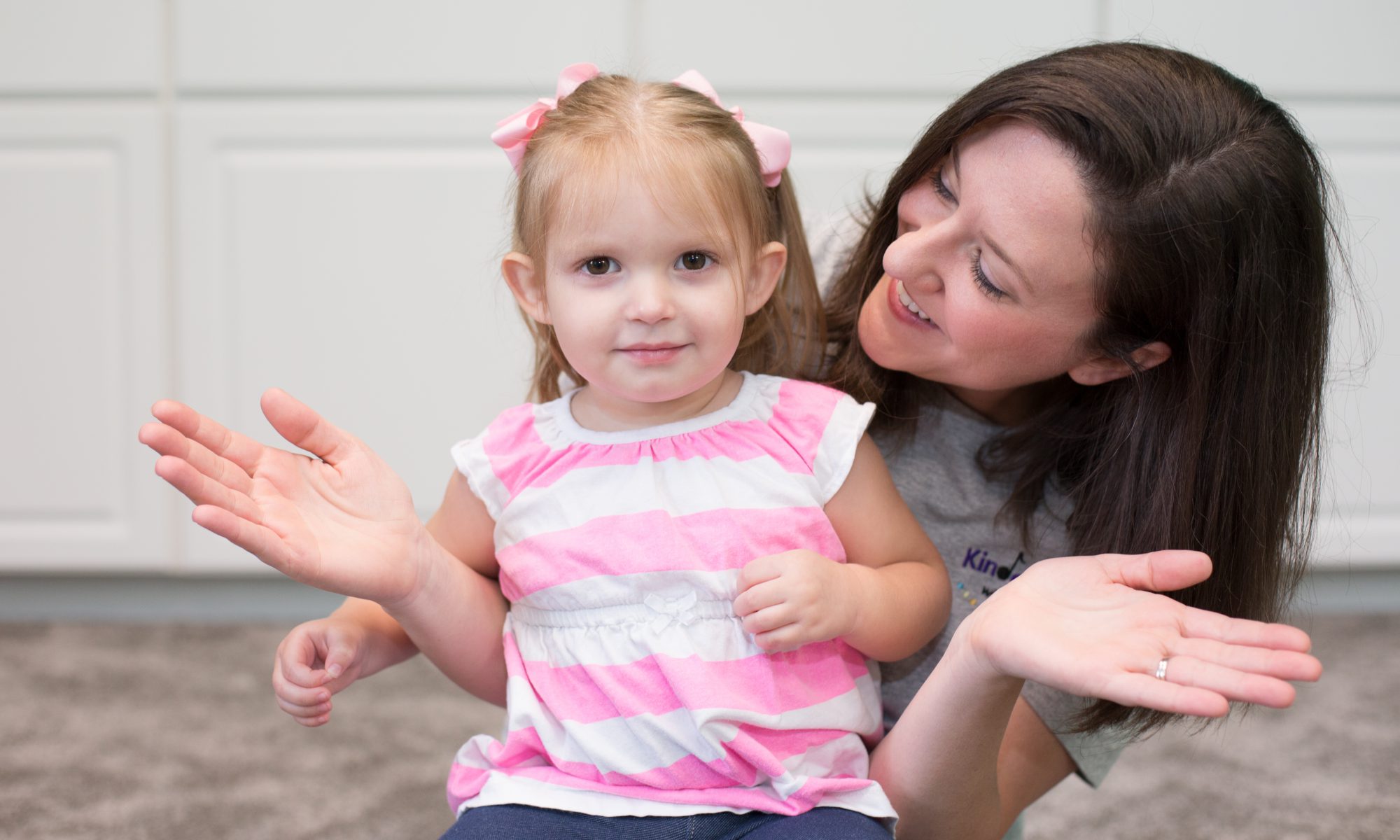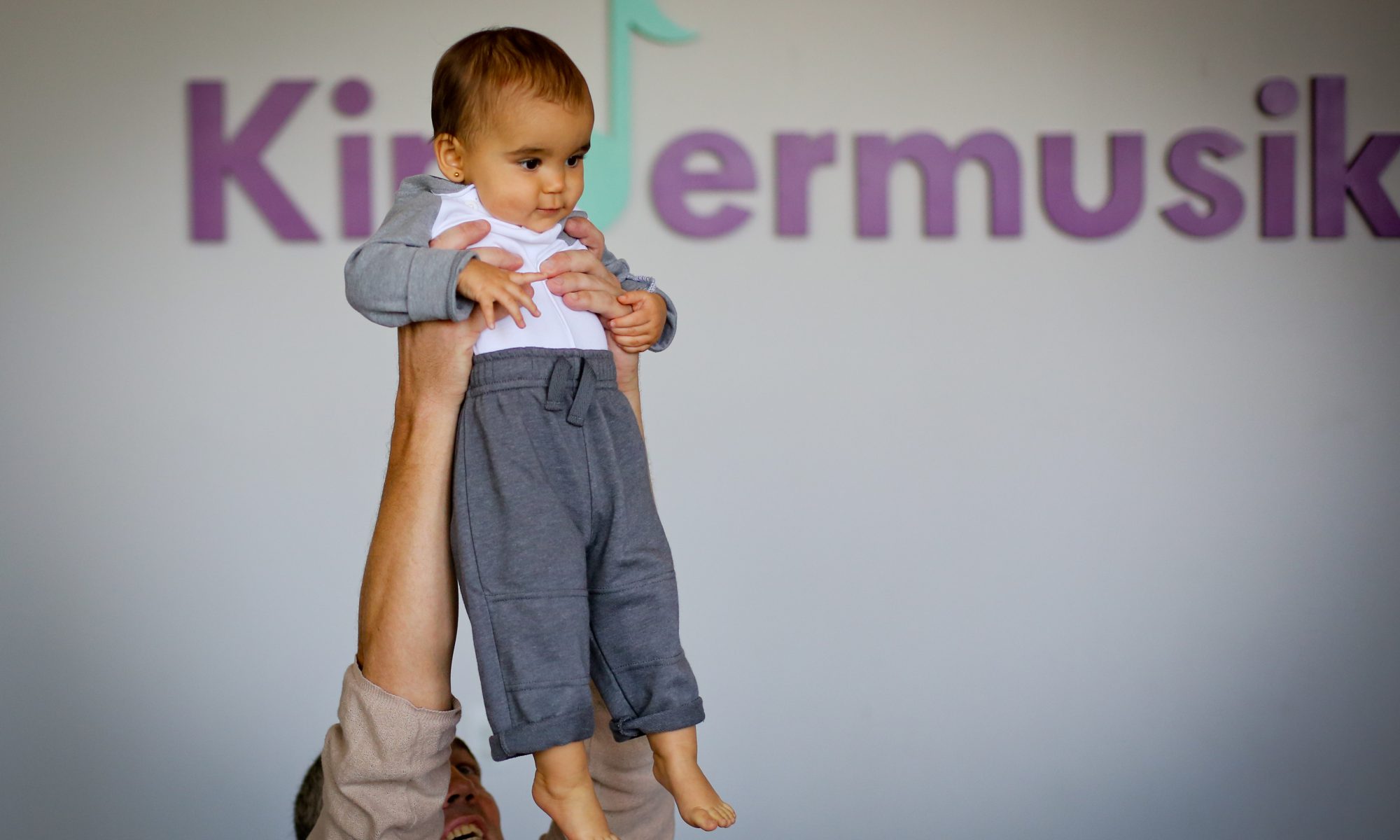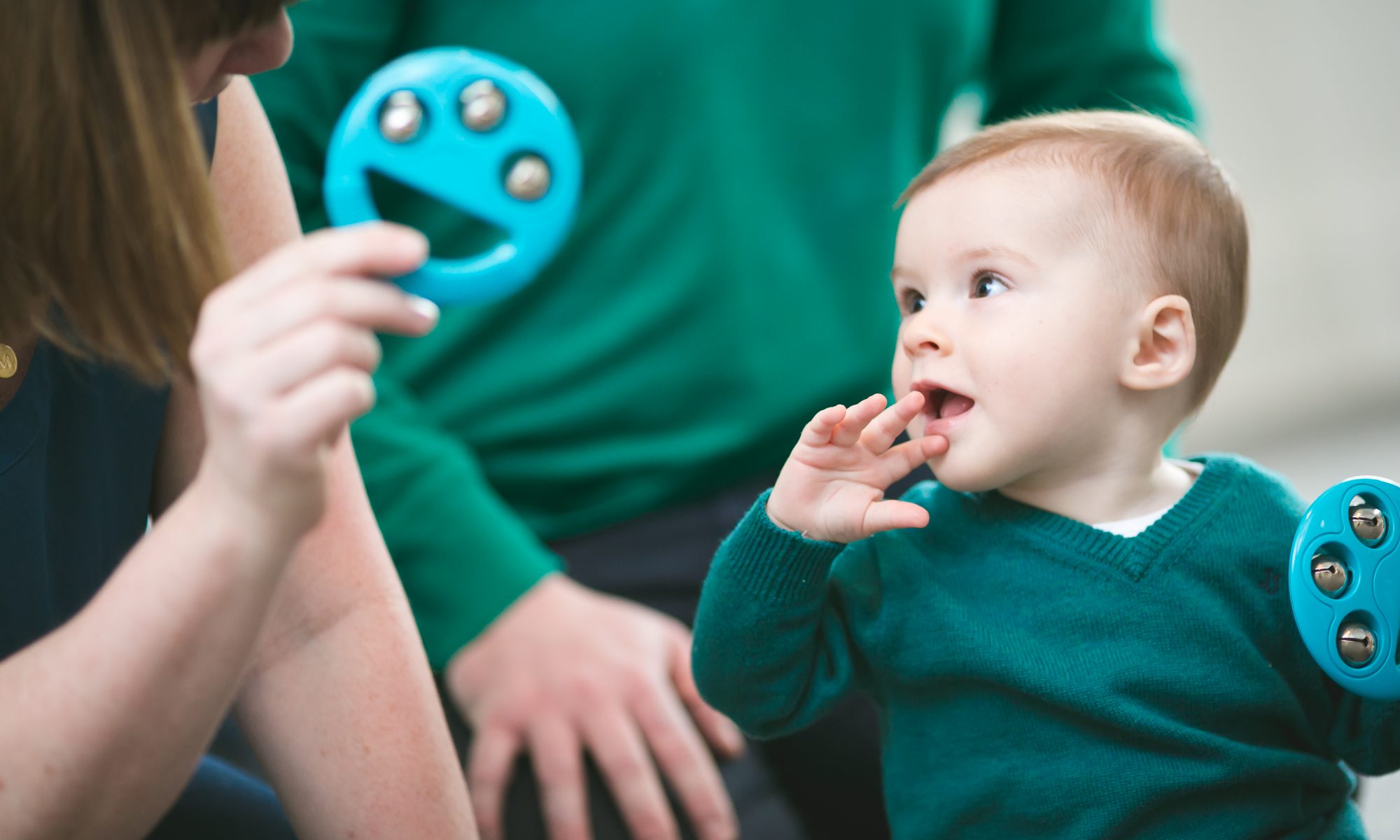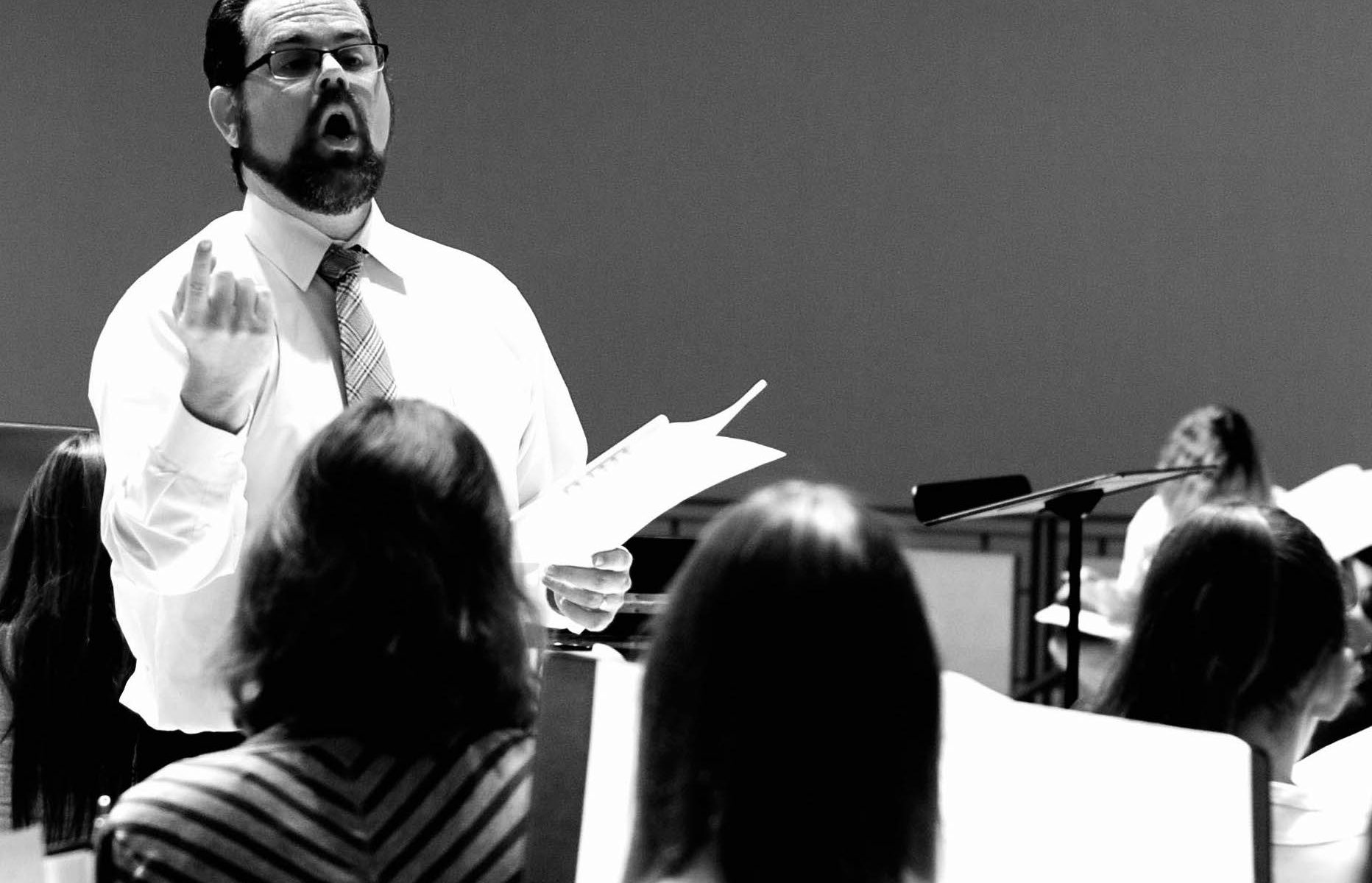Humans are built for repetition. So much of what we do as living beings is rooted in repetitive structure. We have a cycle each day that we repeat: get up…do daily activities…eat…more activities…eat again…more activities…eat a third time…rest a bit…and sleep. The next day its starts again. We brush our teeth the same way each day. We shampoo, rinse, condition, rinse, and style. We put clothes in the hamper, wash them, dry them. and put them away. Over and over.
Music Matters – But Why?
[vc_row][vc_column][vc_column_text]I’m guessing that if you are here, reading this blog, that music is important to you. Your kids might take part in Kindermusik, or perhaps music lessons. You may attend concerts or listen to music on a regular basis. I probably don’t have to convince you about music’s power and its importance in the human experience. I’m not worried about you. It’s the folks that might not know what music can do – the impact it can have on a person’s life – those are the folks I want to reach.
You may know some folks that might not know the benefits of music education or the effect music has on the developing brain, particularly in young kids. So…I want to turn you all into advocacy experts. I want to provide you with knowledge you can pass on to others when they ask “why is this so important?”
Here we go.[/vc_column_text][/vc_column][/vc_row][vc_row][vc_column][vc_column_text]
Music Makes You Feel
I bet you’ve had this experience. You are at a concert or you are listening to the radio and a song comes on that you have never heard before. I have had many of these experiences – many of them on the podium while conducting. But the most intense instance was about a year after my father passed away. I was living in Hawai’i by myself. My wife had relocated back to the mainland in anticipation of my discharge from the Navy. I hadn’t really processed my father’s death. I hadn’t cried. I hadn’t really mourned.
As I was driving home from an event in Honolulu, Tracy Chapman’s The Promise came on the radio. Take a listen.[/vc_column_text][/vc_column][/vc_row][vc_row][vc_column][vc_video link=”https://www.youtube.com/watch?v=cnjegFZGBDk”][/vc_column][/vc_row][vc_row][vc_column][vc_column_text]It was the combination of Tracy’s voice and the following lyric that got to me:
If you think of me
If you miss me once in a while
Then I’ll return to you
I’ll return and fill that space in your heart
I lost it. I actually had to pull over to the side of the interstate (yes, there are interstate highways in Hawai’i) as I couldn’t see the road through the tears. A year’s worth of bottled emotion all came flooding to the surface because of this song. The music released my previously padlocked feelings about my Dad. How? Music causes chemical changes in the brain. As far as emotion is concerned, music causes the nucleus accumbens, the amygdala, and the cerebellum to light up. These areas are related to emotion.
In this instance, music acted as a key to a lock for me. It was incredibly therapeutic.
[/vc_column_text][/vc_column][/vc_row][vc_row][vc_column][vc_column_text]
Music Builds Bridges
I’ve told stories about students at festivals sharing why they sing. The answers range from sweet and silly at the beginning of a festival to deep and complex toward the end. Recently, I was in Wisconsin conducting a middle school choral festival. These young musicians had just met each other – 100 seventh, eighth, and ninth graders came together to make music. During breaks, I would ask my question – why do you sing? These kids felt safe enough to share some very meaningful reasons:
“My grandfather passed away three years ago. We would sing together in church choir. It’s my way to stay close to him.”
“It’s the only place I feel like I can really be me.”
“Music makes me realize that I am powerful.”
“Music is my home.”
Last month, I conducted a county high school choral festival. One student wrote the following:
“Music has prevented me from making a decision that could have altered my life (multiple times). It has brought me pure happiness in times of endless sorrow.”
To share these things with folks you have just met doesn’t happen too often. Making music with others builds compassion and empathy. It’s a pretty amazing thing to be a part of.
Experiencing music at a young age starts this process. It helps with social development in ways that other activities do not.[/vc_column_text][/vc_column][/vc_row][vc_row][vc_column][vc_column_text]If you have a second, head over and read my friend Elliot Cole’s post about why music matters. He shares the story about a prison inmate letting his guard down because of music. It’s quite the tale.[/vc_column_text][/vc_column][/vc_row][vc_row][vc_column][vc_column_text] [/vc_column_text][vc_column_text]
[/vc_column_text][vc_column_text]
Music Fertilizes the Brain
Music for music’s sake should be reason enough as to why we should study music. John Adams gave us this gem in a letter to his wife, Abigal Adams:
I must study politics and war that my sons may have liberty to study mathematics and philosophy. My sons ought to study mathematics and philosophy, geography, natural history, naval architecture, navigation, commerce, and agriculture, in order to give their children a right to study painting, poetry, music, architecture, statuary, tapestry, and porcelain.
It’s right there – one of the United States’s founding fathers told us – music is a noble art and worthy of our time. But, in the interest of advocacy, music has a positive impact on how we learn other subjects. The National Association for Music Education provides a great list for music advocacy superheroes. Here is a selection:
- Musical training helps develop language and reasoning: Students who have early musical training will develop the areas of the brain related to language and reasoning. The left side of the brain is better developed with music, and songs can help imprint information on young minds.
- Students learn to improve their work: Learning music promotes craftsmanship, and students learn to want to create good work instead of mediocre work. This desire can be applied to all subjects of study.
- Better SAT scores: Students who have experience with music performance or appreciation score higher on the SAT. One report indicates 63 points higher on verbal and 44 points higher on math for students in music appreciation courses.
- Kids stay engaged in school: An enjoyable subject like music can keep kids interested and engaged in school. Student musicians are likely to stay in school to achieve in other subjects.
– National Association for Music Education
[/vc_column_text][/vc_column][/vc_row][vc_row][vc_column][vc_column_text] [/vc_column_text][vc_column_text]
[/vc_column_text][vc_column_text]
Music Positively Impacts Health
Physical and mental health. Study after study reinforces the fact that music can have very strong, positive effects on our overall health.
- A recent study found that listening to classical music helped college students with insomnia.
- Scientists have found that music may improve heart health.
- Multiple researchers believe that music can reduce pain perception.
- Music can reduce cortisol (the stress hormone) levels, thereby reducing overall stress.
- The symptoms of depression can be relieved by listening to music.
The list goes on. Music can reduce recovery time after surgery and working out. It can improve cognitive brain function and help folks manage anxiety. I’ve said it before – music is magic.[/vc_column_text][/vc_column][/vc_row][vc_row][vc_column][vc_column_text]
Go Forth and Advocate!
Now that you have the details – spread them far and wide! And if you are looking for more ways to pull music into your life, take a class! Get your kids involved with Kindermusik! Write a song! Don’t wait any longer – go see that band you’ve been wanting to see or maybe head to your local symphony.
Remember friends…music makes it meaningful.[/vc_column_text][/vc_column][/vc_row]
The Justa Syndrome
[vc_row][vc_column][vc_column_text]Pep talk time. In the past two days, I have had two separate interactions with people in my life that reminded me of something many of us will face at some point or another. I call it the “Justa Syndrome.” Our kids will probably face it, too. And if we don’t know how to deal with it, it’s going to be hard to help them work through it.
“So…what is it, Dr. Boyle?” I hear you asking through the fiber-optics and wireless signals of the internet.
I’ll tell you…[/vc_column_text][/vc_column][/vc_row][vc_row][vc_column][vc_column_text]
I’m Just a Music Teacher
Interaction #1 is what reminded me of the Justa Syndrome. It sneaks up on you in quiet moments, often when you are doing busy work. Or perhaps you’re riding an elevator, surrounded by other humans, but remaining in relative silence. It’s that sudden (or maybe even constant) thought that what you do (or even who you are) is somehow not enough. This happens often in our field – when asked, a music teacher might say “I’m just a music teacher,” especially if they might not be performing as part of their career.
A friend and colleague emailed me about one of our alums who is out doing her thing. She had just gotten a new post as an organist and had let several of us know. My friend is one of the biggest cheerleaders our students have. He reminded me that he gets “annoyed at those who would say, ‘I’m JUST an elementary/junior high/private music teacher.'”
JUST? He answers that question with, “What do you mean, you’re JUST…Do you realize the impact you have on those students? You may be giving them the only lasting relationship that they have with music!”
He’s right, of course. But it goes beyond our field. Everyone can take pride in the work they do. We all contribute to the whole.
And if you are reading this blog, I assume you probably have a child, maybe more than one. Maybe you are a grandparent or an aunt. Maybe you are a caregiver. When the Justa Syndrome sneaks up on you, remember this friends…you are EVERYTHING to that child. When you love a child unconditionally, when you tuck them in at night with a kiss, when you wake them up in the morning with a smile, when you hug them when they are hurting and laugh with them when they are silly, you are their sun and moon. They trust you in all things. You are never “just” an anything. You are their light in the dark.[/vc_column_text][/vc_column][/vc_row][vc_row][vc_column][vc_column_text]
Just a Kid
Guess who is even more susceptible to the Justa Syndrome? KIDS! How often have you heard, “I can’t do that. I’m just a kid.” Now…what doesn’t help this is that there certainly are things that kids can’t and shouldn’t do. I don’t want my five-year-old nephew flying my plane…but we could PRETEND to fly or make some paper airplanes! I don’t want my neighbor’s three-year-old daughter operating a jack hammer…but we could get some blocks and build something, then knock it down with glee! We can be portals of possibility for our kids. We can show them the world and all its wonder. We can remind them that they are wondrously made, with a built-in compass that points to the possible. We just have to guide them to age-appropriate possibilities.[/vc_column_text][/vc_column][/vc_row][vc_row][vc_column][blockquote cite=”Dr. Boyle”]”We can be portals of possibility for our kids.”[/blockquote][/vc_column][/vc_row][vc_row][vc_column][vc_column_text]
The Enemy of “Justa” is “Trust”
When I work with private voice students and I notice that they are carrying unnecessary tension in the body or the voice, I have them move. I tell them, “The enemy of tension is movement!” As they move about the studio, the tension dissipates and the voice becomes free and easy.
When a child looks inward and says “I’m just a kid. I can’t do that”, to be that portal of possibility, to point the way to something they can do, there must be a beautiful sense of trust between you and that child. That flows from the unconditional love we all have for the kids in our lives. If the child knows you love them, they will trust you. And when you say, “well, it might be hard to do that now, but I bet we could try this!”…they will be more likely to believe you and believe in their own possibilities.[/vc_column_text][/vc_column][/vc_row][vc_row][vc_column][vc_column_text]
Just Not Ready
Interaction #2 was with one of my private voice students here at my university. She’s a senior and one of the hardest working people I know. She’s organized, respected by her peers and the faculty, and is a joy to teach. This past lesson, I started the way I always do – I asked how she was doing. She started with “It’s okay. I mean, everything is happening so quickly…” and she broke down in tears. This happens more than you’d think, and I keep a stock of tissues for this reason. The relationship between private voice teacher and student is a special one. Our students tend to be more open with us.
I asked her to sit down and handed her the box of tissues. She expressed that she “just didn’t feel ready” for what was coming – the real world.
Normal. I wake up somedays and have that feeling. We are human.
This is a variation of the Justa Syndrome – that feeling of inadequacy.
I needed to remind her of a few things.
“Do you remember coming here as a freshman from high school?
“Yes,” she said.
“And did it feel similar to this, heading into the unknown?”
“Yes!”
Normal.
“Now,” I said, “when you came here, you knew nothing about your chosen field. You were facing several years of new information. It’s completely normal to feel this way right now, but I want to give you some perspective. You are leaving here with four years of accumulated knowledge that you have successfully applied in class, on tests and quizzes, in-field experiences, and now, as an upper-class student who all the other students look up to. Your professors are proud of the work you have done. Your family is proud of you, too. I’ve seen the look in their eyes. We are all in your corner rooting for you. And while it feels overwhelming…I know you are ready. You are more than good enough. You’re you.”
She smiled. “I hadn’t thought about it like that.”
No matter who we are, no matter how old we are or what we do, we will have Justa Syndrome moments. Each of us has opportunities to positively impact others, through our work, through our daily lives, through our relationships. If you made someone smile today, if you held a door open for someone or picked up a piece of trash on the sidewalk, or if you made the life of a child brighter and fuller with love, then you are not “justa” anything. You are you.
And that’s everything.[/vc_column_text][/vc_column][/vc_row]
Building Community Through Music
[vc_row][vc_column][vc_column_text]I travel quite a lot as a conductor. I guest conduct choral festivals in various locations as a part of my musical life. Last month, I found myself working with the New Jersey Treble All-State Choir, an ensemble made up of high school sopranos and altos. These types of festivals are always exciting for me. There’s something special about conducting a group that will only exist for a very short period of time. After the performance is over, that ensemble will never exist again. For this choir, people come from high schools all over New Jersey to make music with strangers. One of the things I always focus on is building a community in the ensemble, even for the brief time they are together – because an ensemble that has a sense of community about it will always make more meaningful music. This is directly related to the emotional and social benefits found in a Kindermusik class[/vc_column_text][/vc_column][/vc_row][vc_row][vc_column][vc_column_text]
Connections
To be bold, building that sense of community is actually more important to me than the music; particularly at first. The ensemble won’t trust me just because I was selected by a committee and have fancy letters after my name. I work hard to prove to them that I am there for them as people first, musicians second. I do my best to connect to each person – all 150 or them – in some meaningful way, even if it’s only for a second. This often takes the form of standing at the door and greeting each person with a handshake and asking their name. I might walk through the rows of singers and do the same.
As we move from piece to piece, I often ask the musicians to turn to their neighbor behind or in front of them (this will prevent students from the same school as the default interaction as they often sit next to each other) and share something about themselves that makes them proud or that makes them smile. This breaks down walls and starts to build simple, but powerful connections between the singers. [/vc_column_text][/vc_column][/vc_row][vc_row][vc_column][vc_column_text]
Purpose
I admit, I talk a lot in rehearsal. I certainly talk less now than I did when I was younger, but I do still talk quite a bit. We talk about the text of the music and what it means for us and our audience. We talk about composer’s intent. We talk about what our job as musicians is…what our purpose is. Put plainly, I tell the students that it’s our job to change lives for the better. It’s our job to make people feel something. To give the audience a shared experience. That is difficult to do without a unified sense of the music we make. I ask questions. I encourage mistakes…bold mistakes…mistakes to be celebrated. I tell them that the person who makes no mistakes makes nothing. I do my level-headed best to create an environment of possibility in which we can learn from a mistake and not be embarrassed by it.
When the rehearsal starts, the very first thing we do is sing. That’s our practical task at hand. Our purpose is to enrich each other’s lives with the shared experience of music, thereby enriching the lives of our audience. [/vc_column_text][/vc_column][/vc_row][vc_row][vc_column][blockquote cite=”Unknown”]”The person who makes no mistakes makes nothing.”[/blockquote][/vc_column][/vc_row][vc_row][vc_column][vc_column_text]

[/vc_column_text][vc_column_text]
Music’s Magic
I talk about this a great deal on this blog. There certainly is a ton of science that tells us, as best it can, why music affects us the way it does. We talk about that, too; it’s important to know that information. But, as silly as it might be, I fully embrace Albus Dumbledore’s take on music, so beautifully stated in Harry Potter and the Sorcerer’s Stone:
“Ah, music,” he said, wiping his eyes. “A magic beyond all we do here!”
It is magic. A roomful of singers who have never made music together smile at the wonder of it all. They feel the connection, almost instantly. Kindred spirits from different communities, ethnic backgrounds, faith experiences, and socio-economic groups coming together to sing, one of the purest forms of musical expression. Each singer finds their place rather quickly as we understand our common goal…to change lives.
We work hard for three and a half hours. I sweat like crazy (I’m quite active in rehearsal). We practice extravagant gratitude. I ask them to thank each other and thank our collaborative pianist. I ask them to thank their choral directors at their high school. I ask them to thank their parents and guardians. I ask them to feel proud of their work. [/vc_column_text][/vc_column][/vc_row][vc_row][vc_column][vc_column_text]
End Game
When we are done after this initial meeting, this first rehearsal, a new family has been created. A new community full of connections and shared purpose and magic has been born. Hopefully, they are looking forward to the next rehearsal, this opportunity to be together as that community to change lives, even each other’s lives.
One of the most important aspects of the Kindermusik experience is making music with other kiddos. The social/emotional benefits of this activity can’t be overstated. As kids see others engaged in an activity that brings themselves joy, the spark of connection lights a fire within. Emotional sensitivity for others is increased. The very idea of cooperative society blossoms in a Kindermusik class.
Our educators approach what they do in the same way I approach all my rehearsals…with love. It’s an honor to change a life with music. And every day we wake up knowing that’s what we get to do, we friends, that is a good day. [/vc_column_text][/vc_column][/vc_row]




